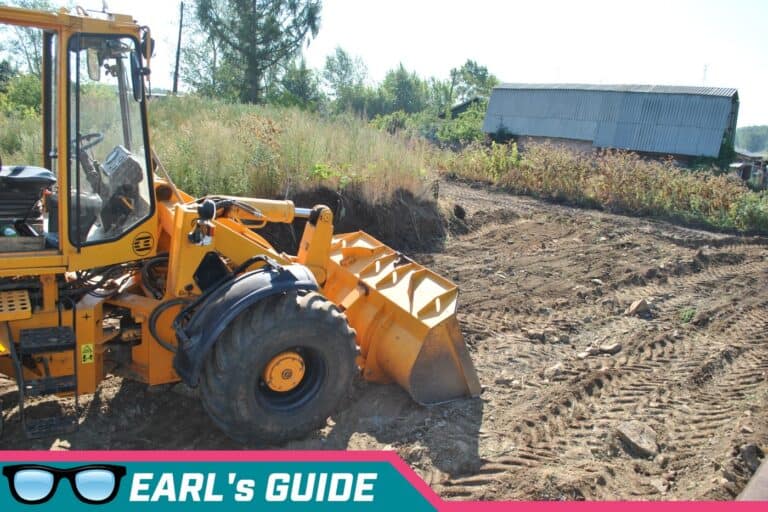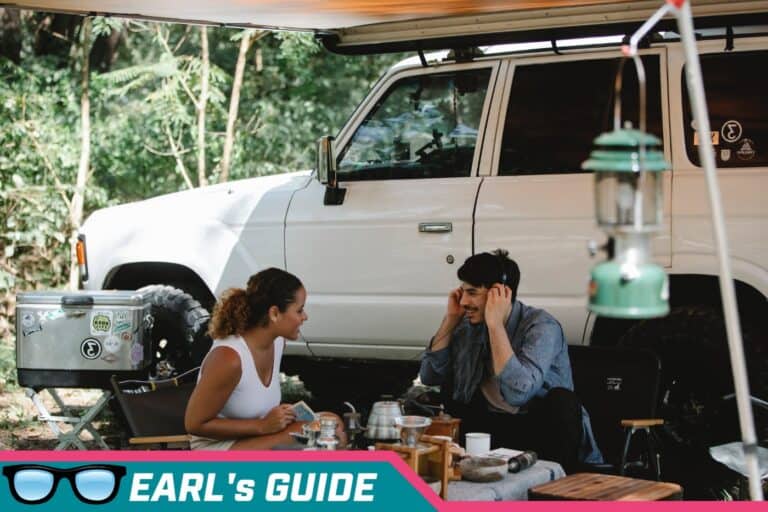If you’re on the hunt for ways to elevate the RV campground experience, you’ve just struck gold. Imagine transforming an ordinary camping trip into an unforgettable adventure packed with activities that cater to all ages and interests. Whether you’re a campground manager looking to spice up your site’s offerings or a camper in search of inspiration, this guide is your ticket to creating those priceless memories. So, buckle up as we dive deep into the what, how, where, and why of RV campground activities, ensuring your next outdoor escapade is nothing short of spectacular.
What Makes RV Campground Activities Stand Out?
RV campground activities are not just mere pastimes; they’re the heartbeat of the camping experience. These activities range from the serene to the adventurous, offering something for everyone. But what truly sets them apart is their ability to bring people together, fostering a sense of community and creating bonds that last a lifetime. From outdoor movie nights under the stars to thrilling kayak races on the lake, these activities are designed to make every moment spent at the campground memorable.
How to Implement Engaging RV Campground Activities
1. Know Your Audience: Understanding who frequents your campground is key. Catering to families? Ensure kid-friendly activities are on the list. Hosting adventure seekers? Add some adrenaline-pumping options.
2. Variety is the Spice of Life: Incorporate a wide range of activities to cater to different interests and age groups. Think nature hikes, craft sessions, group games, and water sports.
3. Seasonal Sensations: Tailor your activities to the seasons. Snowshoeing in winter, wildflower walks in spring, water activities in summer, and haunted hayrides in fall can offer year-round appeal.
4. Community Engagement: Involve campers in the planning process. Hosting idea boxes or social media polls can make campers feel heard and valued.
77 activities an RV campground activities director could implement
Here’s a comprehensive list of 77 activities an RV campground activities director could implement, complete with a brief explanation for each:
- Outdoor Movie Nights: Set up a screen and projector for campers to enjoy movies under the stars.
- Guided Nature Walks: Offer educational tours highlighting local flora and fauna.
- Scavenger Hunts: Organize hunts with clues to explore the campground and learn about the area.
- Craft Workshops: Host sessions on making items like friendship bracelets, custom t-shirts, or nature crafts.
- Live Music Evenings: Invite local bands or solo artists for evening entertainment.
- Yoga Sessions: Morning or sunset yoga classes can cater to all skill levels.
- Canoe and Kayak Races: Utilize any onsite water bodies for fun and competitive races.
- Campfire Storytelling: Gather around a fire for ghost stories or family-friendly tales.
- Bird Watching Tours: Early morning tours can introduce campers to bird species in the area.
- Outdoor Cooking Contests: Host competitions like chili cook-offs or BBQ battles.
- Fishing Competitions: Organize a catch-and-release fishing event for all ages.
- Photography Contests: Encourage campers to capture the beauty of the campground and surroundings.
- Stargazing Nights: With telescopes and guides, show campers the constellations.
- Bike Rallies: Map out courses for cyclists to explore the local terrain.
- Trail Maintenance Days: Involve campers in keeping hiking trails clean and passable.
- Potluck Dinners: Promote community by having a night where everyone shares a dish.
- Geocaching Adventures: Set up a geocaching event for an electronic treasure hunt.
- Artisan Markets: Invite local vendors to sell crafts, foods, and other goods.
- Wilderness Survival Workshops: Teach basic survival skills like fire-making and shelter-building.
- Archery Competitions: Set up a safe archery range for friendly competitions.
- Karaoke Nights: Let campers showcase their singing talents.
- Mini Golf Tournaments: Organize a fun tournament if you have a mini-golf course.
- Rock Climbing Classes: Offer sessions for beginners on any available climbing walls.
- Herb and Vegetable Gardening: Teach campers to plant and care for a garden.
- Water Aerobics: In a pool or lake, host low-impact exercise classes.
- Eco-friendly Craft Sessions: Focus on crafts that utilize recycled materials.
- Tie-Dye Workshops: Campers can bring or buy shirts to tie-dye.
- Astronomy Workshops: Teach campers about the planets and stars.
- S’mores Making Contest: See who can create the most inventive s’mores.
- Sandcastle Building (Beach Campgrounds): Host a competition on the shore.
- Flashlight Tag: A nighttime game that’s fun for families.
- Disc Golf Tournaments: Set up a course for a friendly or competitive game.
- Cultural Theme Nights: Celebrate different cultures with food, music, and activities.
- Nature Photography Workshops: Teach techniques for capturing wildlife and landscapes.
- Kayaking Lessons: Offer beginner lessons for kayaking enthusiasts.
- Historical Reenactments: Bring local history to life with costumes and stories.
- Outdoor Fitness Boot Camps: Start the day with a high-energy workout session.
- Foraging for Edibles: Teach campers to safely identify and harvest wild edibles.
- Ice Cream Socials: A sweet treat that brings the campground community together.
- Pancake Breakfasts: Host a communal breakfast for campers.
- Tree Identification Walks: Educate campers about the different tree species in the area.
- Dog Agility Courses: Set up a course for campers’ furry friends.
- Family Field Days: Organize classic field day games like three-legged races and tug-of-war.
- Board Game Nights: Set up a variety of games for all ages.
- DIY Birdhouse Workshops: Provide materials for campers to build their birdhouses.
- Zumba Classes: A fun and energetic way to exercise.
- Mushroom Hunting Lectures: Teach about the fungi that can be found in the area.
- Quilt Making Sessions: A cozy craft for cooler evenings.
- Environmental Education Programs: Discuss local ecology, conservation, and how campers can help.
- Teen Adventure Races: Set up obstacle courses or adventure races for teenagers.
- Adults-Only Wine and Paint Nights: Combine creativity with a tasting of local wines.
- Kids’ Fishing Days: Teach young campers the basics of fishing.
- Sunset Paddle Tours: Guided kayak or canoe tours at dusk.
- Dutch Oven Cooking Demos: Show campers the ins and outs of campfire cooking.
- Lantern Making Workshops: Craft paper or jar lanterns for nighttime ambiance.
- Nature Bingo: A bingo game where players find items in nature.
- Hula Hoop Contests: A fun activity for kids and adults alike.
- Campground Beautification Projects: Invite campers to help plant flowers or paint murals.
- Jewelry Making Classes: Use natural materials or beads for unique creations.
- Story Writing Workshops: Encourage campers to write about their experiences.
- Pickup Soccer Games: Organize casual soccer matches for all ages.
- Leaf Pressing and Identification: Collect and identify leaves, then press them as souvenirs.
- Trail Running Groups: Lead runs on local trails for different skill levels.
- Birdhouse Painting: Decorate pre-made birdhouses with paint and other materials.
- Glow Stick Nights: Create trails or games using glow sticks for evening fun.
- Butterfly Gardens: Teach about butterflies and how to attract them.
- Nature Trivia Nights: Host trivia focused on wildlife, plants, and outdoor survival.
- Homemade Ice Cream Making: Show campers how to make ice cream the old-fashioned way.
- Wood Carving Demonstrations: Introduce the basics of wood carving with simple projects.
- Basket Weaving Workshops: Teach traditional basket weaving techniques.
- Folk Music and Dance Nights: Celebrate with traditional music and dance lessons.
- Rainy Day Movie Marathons: Have a selection of movies ready for inclement weather.
- Camping Skills Workshops: Cover basics like tent setup, fire safety, and Leave No Trace principles.
- Obstacle Courses for Kids: Create a fun and challenging course for young campers.
- Sunrise Meditation Sessions: Start the day with peaceful meditation in nature.
- Local Wildlife Presentations: Bring in experts to talk about the animals in the area.
- Stewardship and Conservation Talks: Discuss the importance of protecting natural resources.
Where to Host Unforgettable RV Campground Activities
Choosing the right setting within your campground can make or break the activity. Lakesides offer a perfect backdrop for water-based activities, while open fields are ideal for sports and games. Don’t underestimate the charm of a campfire in a cozy, wooded area for storytelling or marshmallow roasting. Each location within your campground holds potential for different types of activities, so utilize these spaces creatively to maximize enjoyment and participation.
Why Invest in RV Campground Activities?
The benefits of incorporating activities into your campground are manifold. Not only do they enhance the camping experience, but they also play a crucial role in attracting and retaining guests. Campgrounds known for their vibrant activity calendar tend to see higher occupancy rates and more repeat visitors. Furthermore, activities provide an excellent opportunity for campers to disconnect from technology and reconnect with nature and each other, aligning perfectly with the growing trend towards digital detox and outdoor recreation.
Maximizing Fun with Minimal Resources: Clever RV Campground Activity Ideas
Not all campgrounds have the luxury of vast spaces or extensive facilities, but this doesn’t mean the fun has to be limited. With a bit of creativity, even campgrounds with minimal resources can offer a fantastic array of activities. Consider organizing a “Campsite Crawl” where campers decorate their sites and host mini-events or games. Another option is a “Digital Scavenger Hunt,” where participants use their smartphones to capture pictures of items or locations around the campground based on clues provided. These activities require little in terms of physical resources but can significantly enhance the camping experience.
Overcoming Challenges: Tips for Smooth Activity Execution
Implementing a diverse activities program can come with its set of challenges, from weather disruptions to varying camper participation levels. Here are a few tips to navigate these issues:
Adaptability: Always have a plan B, especially for outdoor activities susceptible to weather changes. Indoor alternatives or weather-proof setups can save the day.
Inclusivity: Ensure activities cater to all physical abilities and interests. Providing variations or alternative options can make everyone feel welcome and included.
Communication: Keep your campers informed about the activities schedule, any necessary preparations, and changes. Effective communication can significantly enhance camper satisfaction and participation.
Making Memories: Why RV Campground Activities are Essential
The essence of RV campground activities goes beyond mere entertainment; they are about creating memories that last a lifetime. These activities provide a platform for learning new skills, discovering hidden talents, and stepping out of one’s comfort zone. They also offer the chance to disconnect from the digital world and connect with nature and fellow campers. The laughter shared around a campfire, the teamwork in a canoe race, or the tranquility of a guided nature walk are the moments that define the camping experience.
The Role of Feedback in Perfecting RV Campground Activities
Gathering feedback from campers is invaluable in refining your activities program. Post-activity surveys, suggestion boxes, and informal conversations can provide insights into what works and what can be improved. This feedback loop not only helps in enhancing the quality of your offerings but also makes campers feel involved and valued, increasing their likelihood of returning.
A Story That Sticks: The Campground That Became a Community
Let me share a story that perfectly illustrates the transformative power of RV campground activities. Pine Grove Campground was once a quiet, modest site frequented by the occasional camper. However, when the new management took over, they decided to infuse life into the campground by introducing a variety of activities. From themed weekends and live music nights to environmental education workshops and outdoor yoga sessions, the campground transformed into a vibrant hub of activity and social interaction. The result? A loyal community of campers who return year after year, not just for the scenic beauty but for the sense of belonging and the rich tapestry of experiences offered by Pine Grove.
Frequently Asked Questions (FAQ)
Q: How can I ensure the safety of campers during activities? A: Prioritize safety by conducting risk assessments for each activity, ensuring proper equipment and safety gear are available, and providing clear instructions and supervision. Additionally, having trained first aid staff on hand is crucial.
Q: How do I promote my campground’s activities to potential campers? A: Leverage social media, your campground’s website, and email newsletters to showcase upcoming activities. High-quality photos and testimonials from past campers can also be powerful marketing tools.
What is the most popular camping activity?
The most popular camping activity, universally embraced by outdoor enthusiasts across the globe, is undoubtedly the campfire gathering. This timeless tradition transcends cultural and geographical boundaries, uniting campers in a shared experience that is as old as humanity itself. The campfire serves as the heart of the camping experience, offering warmth, light, and a focal point for social interaction, storytelling, and culinary adventures.
At its core, the campfire gathering embodies the essence of camping, connecting people to the natural world and to each other in a profoundly simple yet meaningful way. It is a moment where the hustle and bustle of daily life can be set aside, allowing campers to enjoy the present moment, whether it’s through the mesmerizing dance of flames, the comforting crackle of burning wood, or the shared anticipation of roasting marshmallows to golden perfection.
One of the reasons the campfire gathering holds the title of the most popular camping activity is its versatility. It caters to all ages and interests, serving as a backdrop for a wide range of activities. For some, it’s about storytelling and songs, an opportunity to share tales of adventure, folklore, or personal anecdotes that draw laughter and sometimes even reflective silence. For others, it’s about the culinary experience—cooking meals directly over the flames, from simple hot dogs and s’mores to more elaborate campfire recipes that have been passed down through generations or discovered anew with each camping trip.
Moreover, the campfire gathering fosters a unique sense of community and camaraderie among campers. It’s a space where friendships are formed and strengthened, where families bond, and where strangers can become friends over shared experiences and the intrinsic connection that comes from gathering around a warm fire under the open sky. This communal aspect is perhaps what makes campfires such an integral and beloved part of the camping experience.
In addition to its social and culinary appeal, the campfire also holds a deep-rooted place in our collective psyche as a symbol of survival and exploration. Historically, fire has been a crucial element for warmth, protection, and cooking, essential for human survival. In the context of camping, it continues to represent a connection to our ancestors and the basic human instinct to explore and thrive in the natural world.
Environmental responsibility is also an important consideration in maintaining the popularity and sustainability of campfire gatherings. Campers are increasingly aware of the importance of practicing Leave No Trace principles, ensuring that fires are built in designated areas, using only fallen wood or wood brought from home (where permitted), and fully extinguishing fires to prevent wildfires. This consciousness towards preserving the natural environment ensures that campfire gatherings can continue to be a cherished activity for generations to come.
The campfire gathering remains the most popular camping activity due to its unparalleled ability to bring people together, create lasting memories, and connect us to the natural world and our primal selves. It is a simple yet profound activity that encapsulates the spirit of camping, offering warmth, light, and camaraderie under the stars. Whether it’s through shared stories, laughter, or the communal preparation of food, the campfire gathering continues to be the highlight of any camping trip, cherished by campers of all ages and backgrounds.
What not to do at an RV Campground?
Camping is an adventure that offers a unique blend of freedom, closeness to nature, and the opportunity to disconnect from the digital world. However, to ensure that the experience is enjoyable not only for you but also for others and the environment, there are certain practices and behaviors to avoid. Understanding what not to do at camp is crucial for preserving the natural beauty of the outdoors and ensuring a harmonious coexistence with fellow campers and wildlife.
1. Do Not Leave Trash Behind: Perhaps the most fundamental rule of camping is to leave no trace. This means packing out all your trash, including food scraps, packaging, and other waste. Littering not only detracts from the natural beauty of the environment but can also harm wildlife and lead to pollution of water sources. Always bring enough trash bags and ensure everything that you brought to the campsite leaves with you.
2. Do Not Disrespect Wildlife: Wildlife should be observed from a distance and not disturbed. Feeding animals, attempting to touch them, or encroaching on their habitat can disrupt their natural behaviors and diet, making them dependent on humans or leading to aggressive behaviors. Keep your campsite clean and store food securely to avoid attracting animals.
3. Do Not Make Excessive Noise: Campsites are often shared with others who are looking for peace and quiet in nature. Loud music, shouting, or other noisy activities can disrupt the tranquility of the camping area and disturb wildlife. Be mindful of your noise level, especially during early mornings and late evenings when others might be trying to sleep.
4. Do Not Cut Down Trees or Damage Vegetation: Preserving the natural environment is essential. Avoid cutting down trees or damaging plants around your campsite. If you need wood for a campfire, use fallen branches or buy firewood locally if it’s allowed. Remember that the natural landscape is home to countless species and contributes to the ecosystem’s health.
5. Do Not Start Fires in Undesignated Areas: Campfires are a cherished part of the camping experience but can pose a significant risk if not managed responsibly. Only start fires in designated fire pits or rings and ensure you’re familiar with the current fire regulations of the area, which can vary depending on weather conditions and seasons. Always fully extinguish your fire before leaving it unattended or going to sleep.
6. Do Not Forget to Check Weather and Park Regulations: Before heading out, make sure you’re aware of the weather forecast and any specific regulations the park or camping area has in place. This can include fire bans, wildlife advisories, or specific rules regarding campsite usage. Being unprepared for weather conditions or unknowingly breaking park rules can negatively impact your camping experience.
7. Do Not Invade Others’ Privacy: Respect the space and privacy of other campers. Keep a reasonable distance between your campsite and others, and avoid walking through someone else’s campsite without permission. Mutual respect goes a long way in ensuring everyone’s camping experience is enjoyable.
8. Do Not Leave Campfires Unattended: An unattended fire can quickly become a wildfire, especially in dry conditions. Always have water or a shovel handy to extinguish your fire, and make sure it’s completely out before you leave the site or retire for the night.
9. Do Not Rely Solely on Technology: While GPS and smartphones are useful tools, relying solely on technology in the wilderness can be risky. Batteries die, and reception can be unreliable. Always bring a map and compass and know how to use them.
By avoiding these practices, campers can ensure they contribute positively to the camping environment, respecting both nature and fellow outdoor enthusiasts.
Engage with Us: What’s Your Dream RV Campground Activity?
Now, it’s your turn to dream. If you could design the perfect RV campground activity, what would it be? Share your ideas on our social media channels. Your input could inspire new additions to our activity lineup, making the RV camping experience even more enriching for everyone.

Robert Earl
Robert EarlRobert has 20+ years of experience as a Real Estate Agent, Coach & Digital Marketer. Robert Earl is passionate about teaching and empowering others to pursue their dreams and create sustainable income. Whether through a career in real estate, affiliate marketing, niche blogging, or transforming campgrounds into thriving communities, his proven strategies and techniques have helped numerous individuals and businesses succeed. Based on his years of experience and knowledge in the online marketing industry, along with his hands-on management in the Real Estate & RV Park sector, he has crafted a unique and effective approach to personal and professional growth. In addition to his business pursuits, Robert is also a CrossFit Online Level 1 Trainer (CF-OL1) and enjoys fitness activities, including Rucking workouts while traveling the country. His multifaceted career showcases his dedication to growth, innovation, and the pursuit of excellence in various domains.






